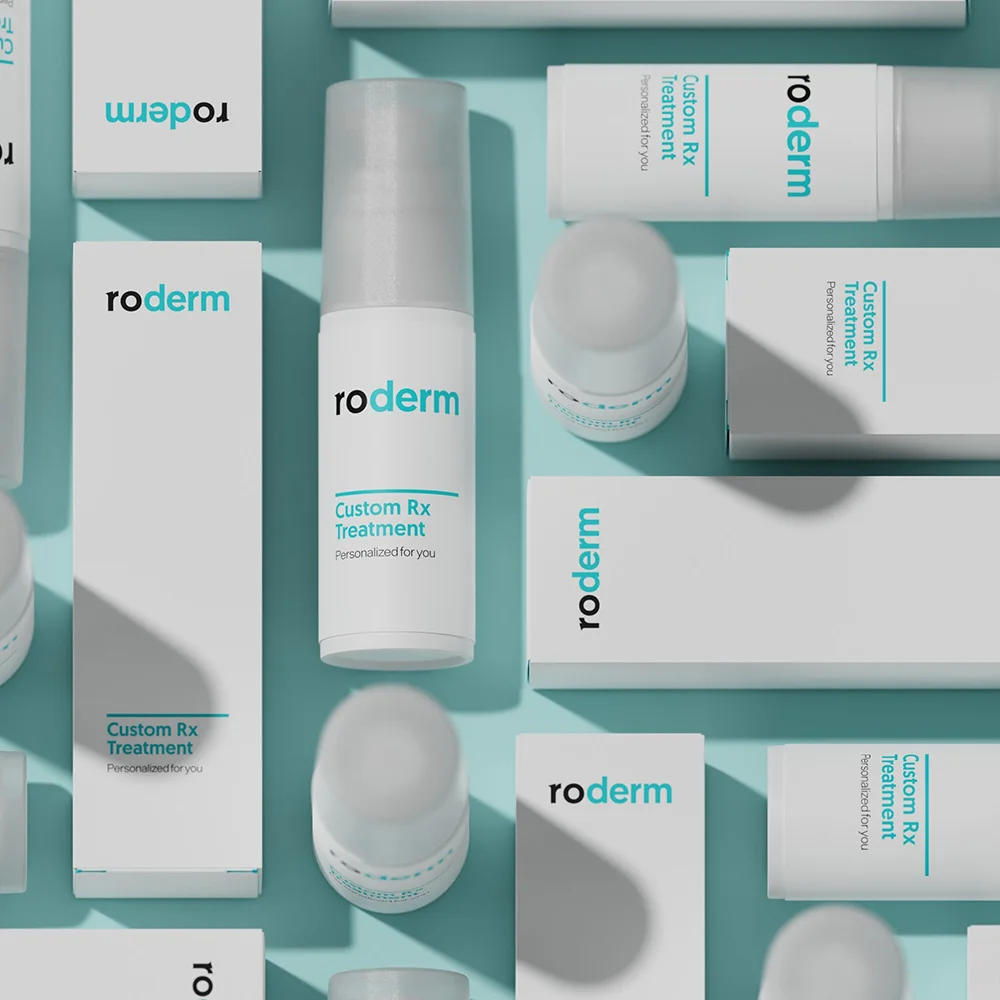Here's what we'll cover
Here's what we'll cover
Here's what we'll cover
Vitamin E is kind of like a Swiss Army knife when it comes to caring for your skin. It not only has multiple functions that can address a wide range of problems, but it’s also multiple tools that we refer to as one. Let’s take a look at how to use vitamin E for skin.
What is vitamin E?
Vitamin E is a group of eight fat-soluble compounds: four tocopherols and four tocotrienols. This vitamin has powerful antioxidant properties, but alpha-tocopherol is the most active of these compounds in humans. Our bodies can’t make vitamin E, so we usually get it from our foods, like olive oil, sunflower oil, and leafy green vegetables (Medina, 2021).
Vitamin E acts mainly as an antioxidant to protect your cells against oxidative damage and free radicals. Free radicals are compounds that can come from external sources—such as pollution—but can also be a byproduct of some natural processes in your body. Problems start when there are too many free radicals or not enough antioxidants to balance them. As we age, this imbalance gets even more critical since we lose some of our inherent antioxidant mechanisms, accelerating potential issues. If left unchecked, free radicals can cause cellular damage that we call oxidative damage (Addor, 2017).
The imbalance between free radicals and antioxidants is called oxidative stress. This condition can cause harm to cells and has been linked to several chronic diseases such as diabetes, heart disease, certain cancers, and neurodegenerative diseases, such as Alzheimer’s disease and Parkinson’s disease. Oxidative stress is also linked to aging (Liguori, 2018).
Oxidative stress not only ages our internal organs through cellular damage, potentially causing chronic diseases, but also causes inflammation and aging of our skin, leading to sun damage and wrinkles (Keen, 2016).
Vitamin E may help combat some of these effects.
Benefits of vitamin E
Vitamin E can help keep your skin hydrated and supple, protected from sun damage, and may even help with hallmarks of premature aging, such as the formation of fine lines. But even though vitamin E addresses all of these skin concerns that we consider separate from each other, it’s able to do that because of one key characteristic: its powerful antioxidant properties (Keen, 2016).
1. May help heal skin from sun damage and premature aging
Let’s get one thing straight: The best protection against photodamage, or sun damage, is avoiding exposure to ultraviolet (UV) rays, whether from the sun or tanning beds. Barring that, since we need to go outside to live our lives, you should apply sunscreen to prevent skin damage and sunburn.
But vitamins can also offer some additional protection. Protection from sun damage is a common theme among the top vitamins for your skin, and vitamin E is no exception. As an antioxidant, it can protect your skin from the oxidative damage caused by the sun’s ultraviolet rays. UV radiation increases free radicals in your skin cells, and sun damage (or photoaging) worsens the appearance of fine lines and wrinkles (Keen, 2016). Vitamin E may help.
2. May neutralize harmful free radicals
Sun damage also leads to inflammation, which further harms your skin and worsens fine lines and wrinkles. Fortunately, not only does vitamin E act as an antioxidant, but it also has anti-inflammatory properties. Because of this, vitamin E may help with acne, psoriasis, and atopic eczema, and other inflammatory skin conditions (Keen, 2016).
3. May protect lipid barrier and lock in moisture
One of the primary functions of our skin is to act as a barrier to the outside world. Like many other types of cells in your body, your skin cells have lipid membranes. One of the ways free radicals cause cellular damage is by breaking down the lipid (fat) membrane on your cells. The lipid membranes on the outermost layer of skin lock in moisture, stopping you from unnecessarily losing water and electrolytes. Vitamin E may help prevent the breakdown of this layer and heal cellular damage already done by free radicals (Keen, 2016).
Forms of vitamin E
A healthy diet is a good foundation for overall healthy skin, so dietary sources are an excellent place to start getting vitamin E to improve skin quality. Since vitamin E is fat-soluble, your body stores this nutrient for when it needs it. Nuts, spinach, avocado, whole grains, and vegetable oils, such as olive oil and sunflower oil, are rich sources of vitamin E. You can also take oral supplements, although meeting your needs through diet alone is possible, especially since this vitamin is often added to some fortified foods (Medina, 2021).
You can also get your vitamin E from oral supplements that are available over-the-counter. Most healthcare providers don’t recommend vitamin E supplements unless you have signs of vitamin E deficiency. People with fat-absorption problems may need to take oral vitamin E, as it is a fat-soluble vitamin. Conditions that can lead to vitamin E deficiency include cystic fibrosis, pancreatitis, and genetic issues.
Lastly, vitamin E is also available in topical form. You’ll find vitamin E in many anti-aging skincare products, including lotions, vitamin E oil, and vitamin E serum. Pure vitamin E oil also moisturizes dry skin.
Potential risks and side effects of vitamin E
Vitamin E may not work for everyone’s skin type. If you have sensitive skin, you may want to leave this vitamin out of your skincare routine and opt for dietary sources instead. Alternatively, speak with a dermatologist who can advise you on the use of vitamin E for your skin.
Topical vitamin E is generally well-tolerated, although sometimes people can develop irritation or allergic reactions.
Potential side effects of oral vitamin E include nausea, headache, vision changes, and upset stomach. While getting too much of the vitamin through dietary sources is pretty tough, vitamin E overdosing with supplements is possible, and can lead to bone problems, bleeding issues, and decreases in vitamin A storage levels (Medina, 2021).
Interactions with vitamin E
Vitamin E can interfere with the ability of your platelets to form clots. For this reason, people with clotting issues should seek medical advice from their healthcare provider before taking vitamin E.
Taking it before surgery, for example, could increase your risk of bleeding during and after the procedure. Similarly, if you have clotting difficulties or are taking blood thinners (anticoagulants), you should use caution with vitamin E supplements as they can increase your risk of bleeding (Keen, 2016; Medina, 2021).
DISCLAIMER
If you have any medical questions or concerns, please talk to your healthcare provider. The articles on Health Guide are underpinned by peer-reviewed research and information drawn from medical societies and governmental agencies. However, they are not a substitute for professional medical advice, diagnosis, or treatment.
References
Addor, F. A. S. (2017). Antioxidants in dermatology. Anais Brasileiros De Dermatologia, 92 (3), 356–362. doi: 10.1590/abd1806-4841.20175697. Retrieved from https://www.ncbi.nlm.nih.gov/pmc/articles/PMC5514576/
Keen, M. A., & Hassan, I. (2016). Vitamin E in dermatology. Indian Dermatology Online Journal , 7(4), 311–315. doi: 10.4103/2229-5178.185494. Retrieved from https://www.ncbi.nlm.nih.gov/pmc/articles/PMC4976416/
Liguori, I., Russo, G., Curcio, F., Bulli, G., Aran, L., Della-Morte, D., et al. (2018). Oxidative stress, aging, and diseases. Clinical Interventions in Aging , 13, 757–772. doi: 10.2147/CIA.S158513. Retrieved from https://www.ncbi.nlm.nih.gov/pmc/articles/PMC5927356/
Medina, J. & Gupta, V. (2021). Vitamin E. [Updated May 15, 2021]. In: StatPearls [Internet]. Retrieved on Oct. 7. 2021 from https://www.ncbi.nlm.nih.gov/books/NBK557737/










